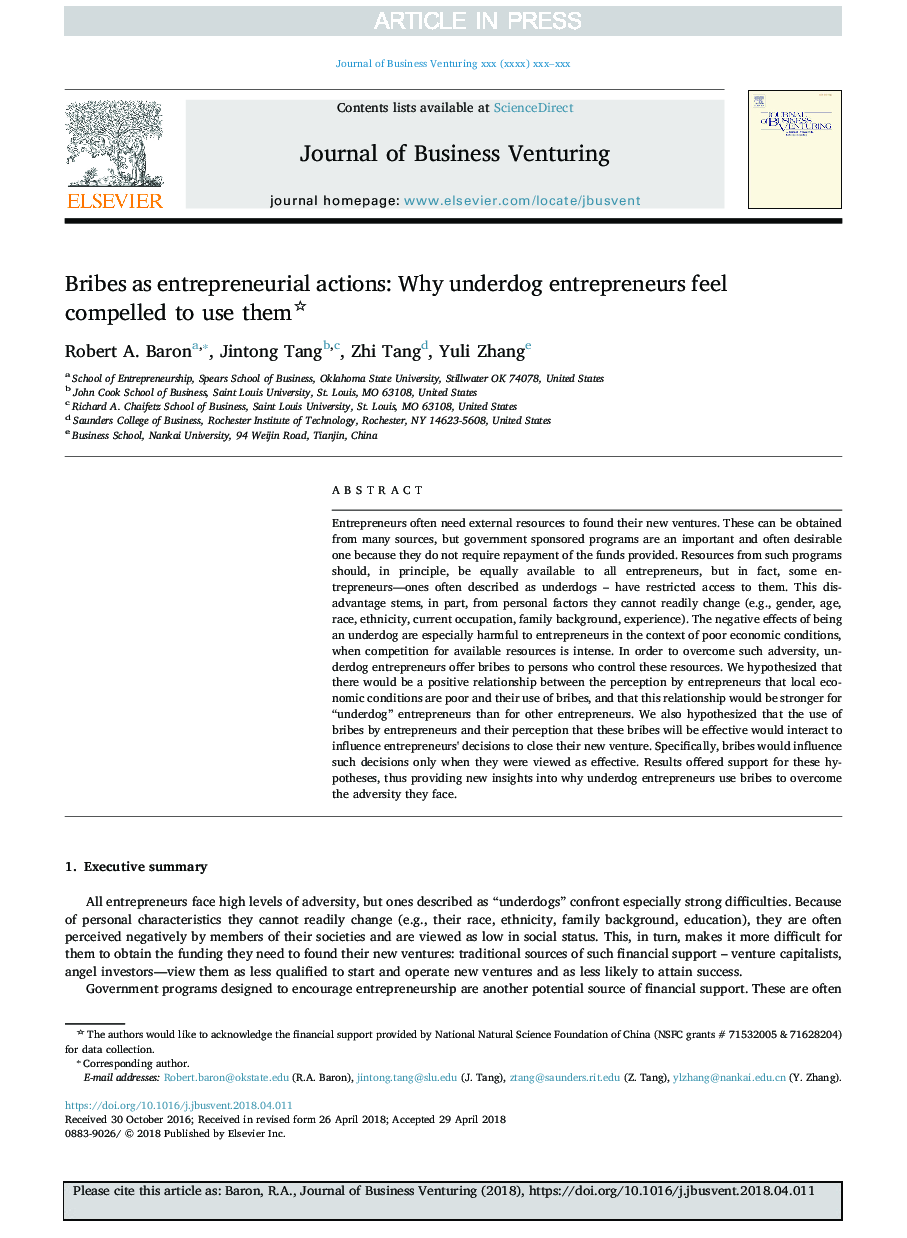| Article ID | Journal | Published Year | Pages | File Type |
|---|---|---|---|---|
| 10153966 | Journal of Business Venturing | 2018 | 12 Pages |
Abstract
Entrepreneurs often need external resources to found their new ventures. These can be obtained from many sources, but government sponsored programs are an important and often desirable one because they do not require repayment of the funds provided. Resources from such programs should, in principle, be equally available to all entrepreneurs, but in fact, some entrepreneurs-ones often described as underdogs - have restricted access to them. This disadvantage stems, in part, from personal factors they cannot readily change (e.g., gender, age, race, ethnicity, current occupation, family background, experience). The negative effects of being an underdog are especially harmful to entrepreneurs in the context of poor economic conditions, when competition for available resources is intense. In order to overcome such adversity, underdog entrepreneurs offer bribes to persons who control these resources. We hypothesized that there would be a positive relationship between the perception by entrepreneurs that local economic conditions are poor and their use of bribes, and that this relationship would be stronger for “underdog” entrepreneurs than for other entrepreneurs. We also hypothesized that the use of bribes by entrepreneurs and their perception that these bribes will be effective would interact to influence entrepreneurs' decisions to close their new venture. Specifically, bribes would influence such decisions only when they were viewed as effective. Results offered support for these hypotheses, thus providing new insights into why underdog entrepreneurs use bribes to overcome the adversity they face.
Related Topics
Social Sciences and Humanities
Business, Management and Accounting
Business and International Management
Authors
Robert A. Baron, Jintong Tang, Zhi Tang, Yuli Zhang,
